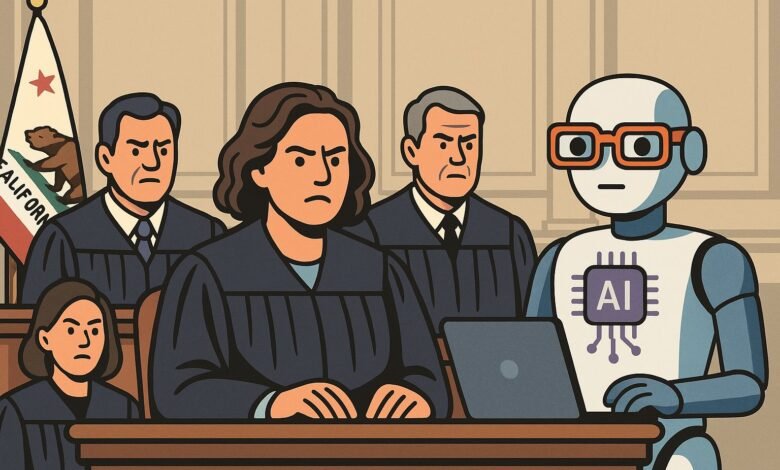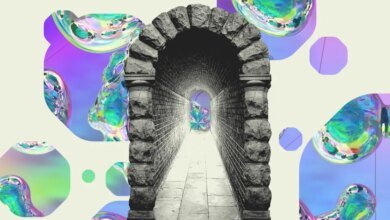California Supreme Court Probes AI Exam Issues

California Supreme Court investigating AI testing issues
California Supreme Court investigating AI testing issues A headline that makes legal and technical professionals stop and take notice. Are AI tools changing the dynamics of law school and bar exam preparation? This issue is no longer theoretical. As concerns grow about the use of artificial intelligence during professional legal examinations, the California Supreme Court has begun direct investigations into how these technologies impact legal evaluations across the state. If you are part of the legal community or someone closely watching how AI is reshaping education and licensing, the following is essential reading.
Read also: Artificial intelligence solutions to the mathematics crisis in California
Understand the controversy surrounding artificial intelligence and legal examinations
The background to this investigation stems from collaboration between law schools and the AI tools used by students. There have been increasing claims that AI tools including ChatGPT and other large language models are helping students in ways that can blur ethical lines. The concern is not only that students are using AI for academic purposes, but that these tools may affect the results of exams that assess proficiency in legal practice.
The California Supreme Court wants answers from the state bar regarding allegations that individuals may have relied on artificial intelligence to complete portions of the bar exam. If true, this undermines the integrity of the testing process, potentially allowing individuals to obtain licenses unethically.
The California State Bar is under judicial scrutiny
To better understand the scope of potential abuse, the California Supreme Court formally requested responses from the state bar. These questions cover everything from identifying suspected incidents of AI misuse to identifying current safeguards in place. The judiciary wants concrete data and action plans confirming that the state bar takes AI-related risks seriously.
The State Bar Association is under pressure to investigate whether examinees received outside assistance from artificial intelligence-powered software during law exams, especially the bar exam. These investigations are expected to determine the legitimacy of test takers’ performance and the validity of their final results.
This initiative is not limited to disclosure. The Supreme Court also expects forward-thinking guidelines that can adapt to evolving AI capabilities. In this context, appropriate digital monitoring, authentication methods and audit procedures will be crucial.
Read also: How is artificial intelligence used in education?
Current artificial intelligence capabilities and their impact on educational integrity
AI platforms capable of writing articles, solving legal problems, and analyzing complex texts are becoming widely popular. These systems can understand legal jargon with amazing accuracy. For bar exam candidates, this opens up the possibility of leveraging artificial intelligence to answer essay questions, complete multiple-choice slides, and even simulate a prepared legal response in real time.
Although this function is technologically impressive, it poses a significant risk in high-risk environments. The California Bar Exam is intended to test an individual’s readiness to assume legal responsibilities. Any interference from AI tools distorts the results, leaving the legal system vulnerable to unqualified entrants.
This has escalated debate across the academic and professional legal communities. Some argue that AI should serve as a legal assistant rather than a substitute for understanding and applying the law. The threat is not only limited to the integrity of the license, but also extends to public confidence in legal institutions.
How law schools are dealing with the rise of legal AI
Some law schools have done little to address the integration of AI on campus, while other universities have quickly established academic policies outlining the permissible use of AI. These range from outright bans during exams to conditional approval for learning support. However, implementability remains one of the biggest challenges facing organizations.
Universities often lack the resources to detect when students are secretly using AI applications. Although plagiarism detection tools have evolved, detecting work generated by artificial intelligence is still more difficult. Law students showed varying levels of awareness about the implications of using AI in academic submissions. Some see it as an appropriate landmark, while others see it as a shortcut that carries significant moral risks.
The California Supreme Court’s decision to engage in this dialogue sends a clear message to prestigious law schools and testing regulatory bodies: passive acceptance of the use of artificial intelligence is no longer an option.
Read also: Court upholds discipline over AI hiring errors
The future of bar exams in the age of artificial intelligence
Regulatory bodies may have to completely reshape the bar exam framework. One idea is to return to oral exams, where real-time assessment could reduce AI-based intervention. Others believe that biometric authentication, secure test browsers, and personal proctoring could become mandatory for some test components.
Another approach being reviewed is the integration of AI awareness modules into legal education. Rather than denying students access to AI altogether, it may be helpful to teach them how to use it appropriately, under guidance and within legal and ethical limits. The goal will be to promote digital literacy without compromising academic integrity.
The National Conference of Bar Examiners has also expressed concern, and is monitoring California closely. If systemic AI is confirmed to be misused, it could lead to nationwide policy changes. States may reform licensing exams or even incorporate individual AI ethics assessments.
Read also: Editors leave Science Journal over AI issues
Implications for current and future legal professionals
Thousands of law license holders who received certification in the past two years may now fall under indirect scrutiny, especially if cases of malpractice are uncovered with the help of artificial intelligence. Increased reliance on digital tools could erode public confidence in the legal profession. As with the rise of remote testing during the pandemic, AI introduces a layer of complexity that the legal field must effectively regulate.
For future test takers, there will likely be new disclaimers, honor codes, and disclosure requirements regarding the use of AI. Schools may push to conduct mock tests without the intervention of technology to measure students’ actual understanding. Law firms also anticipate a future in which employment offers include questions about the ethical use of technology.
This moment represents an opportunity for the legal profession to proactively shape how future lawyers should manage their engagement with AI. It is no longer enough to talk about ethical behavior; Structure, transparency and policy must come next.
Calls for transparent standards and ethical governance of AI
Legal scholars and digital ethics experts have urged both the state bar and law schools to work with technologists to set clear boundaries. The proposed guidelines include a separation between acceptable and unacceptable use of AI in legal education and clear penalties for crossing boundaries.
Transparency within the licensing ecosystem will be critical. The public needs to have confidence that lawyers possess the knowledge and skills necessary to perform their legal duties. Maintaining this trust begins with securing the pathways through which legal professionals gain their qualifications.
It is also essential that students are educated early on the ethical frameworks that will define the responsible use of AI. The best course of action is not reactive enforcement, but preventative education and clear communication across all levels of legal training.
Conclusion: A new chapter in technical responsibility
The California Supreme Court’s investigation into the use of artificial intelligence during bar exams is not just about detecting cheating, it is charting a new course for how professional assessment will evolve. Law as a system depends on independent thinking, judgment and accountability. If technology interferes with these distinct features, the foundation of the entire system will be at risk.
This audit represents a pivotal time for all stakeholders, legislators, educators, future lawyers, and technology developers. At its core, the question is whether the tools that enhance our capabilities may also weaken our standards. The way forward must balance innovation and integrity.
References
Jordan, Michael, et al. Artificial Intelligence: A Guide to Human Thinking. Penguin Books, 2019.
Russell, Stuart, and Peter Norvig. Artificial Intelligence: A Modern Approach. Pearson, 2020.
Copeland, Michael. Artificial Intelligence: What everyone needs to know. Oxford University Press, 2019.
Giron, Aurelian. Hands-on machine learning with Scikit-Learn, Keras, and TensorFlow. O’Reilly Media, 2022.
Don’t miss more hot News like this! Click here to discover the latest in AI news!
2025-06-01 15:57:00




